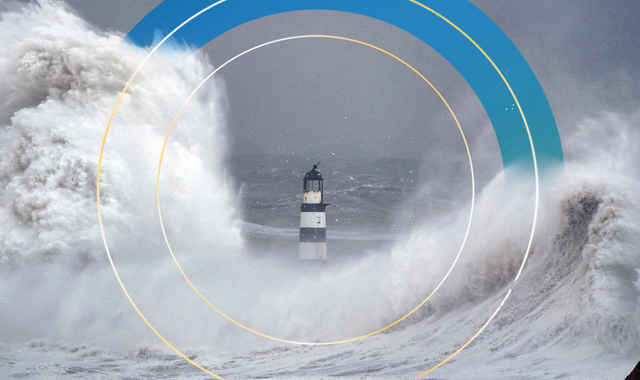Last year's weather signals changing climate even though it was unremarkable, Met Office says

There was nothing exceptional about the weather overall in 2021 in the context of climate change, according to the Met Office.
The annual temperature, rainfall, and sunshine were all near normal compared with the last two decades, it has said in its annual review of the previous year's weather.
Yet it was only "unremarkable" because "our perception of what is normal is changing as our climate changes", the Met Office's Mike Kendon said.
"And these changes are pretty fast" and "fairly concerning", he told reporters at a briefing.
The peer-reviewed study compares things like temperatures, rainfall, and sunshine with 1991-2020, and with the previous climate period of 1961-1990.
The temperatures in 2021, now regarded as normal, would have been near record-breaking just over 30 years ago - before 1990, 2021 would have been the second-warmest year since records began in 1884.
While last year was only the 18th warmest on record, 16 of the warmer years have occurred from 1990.
Responding to a question from Sky News, Mr Kendon said: "You can't have it that every year will be record-breaking."
Yet "every year within the year there are events which are extreme and are very notable", he added, citing the powerful Storm Arwen in November that left thousands of homes without electric and water supplies.
The report also picks out exceptional rain in October and a new record Northern Ireland temperature in July.
But this year's climate has already smashed records, with the country last week enduring up to 40.3C (104.5F) heat that fuelled wildfires, buckled tracks and melted roads.
"That is a moment of climate history for the UK - an absolutely exceptional event with temperature records really smashed," Mr Kendon later told Sky News in an interview.
"We will see more extremes of this type - so we will see more severe, more intense, more prolonged heat waves moving out towards 2100," he added. "How severe those are depends on what we do next - where the emissions go."
Read more: Why a 40C day in the UK is deadlier than a 40C day in other countries
The UK's climate is not just becoming warmer, but wetter and sunnier too. The most recent decade, 2012-2021, was around than 2% wetter than average for 1991-2020, and 10% wetter than 1961-1990 for the UK overall.
The most recent decade was also 8% sunnier than the 1961-1990 average. Sea levels have risen by about 16.5 cm around the UK since 1990, the report found.
"The climate that my children will regard as normal when they grow up is different to the climate that I regard as normal now, and that is different to the climate my dad regarded as normal when he was my age," he said.
A warm October meant that trees shed their leaves later, with the average "bare tree" date in autumn delayed for all monitored species.
Follow the Daily podcast on Apple Podcasts, Google Podcasts, Spotify, or Spreaker
Professor Tim Sparks, expert volunteer for the Woodland Trust - whose Nature's Calendar citizen science scheme records the signs of the seasons - said that changes to species' behaviour in response to the changing climate could leave them out of sync.
"Each species can change at a different rate, that's where there's potential problems," he said.
"The oak tree, which is one of our most important for biodiversity, can leaf early but is that matching the rate of development of caterpillars that feed on those leaves, and matching the rate of development of great tits and blue tits who feed their chicks on caterpillars."
Watch the Daily Climate Show at 3.30pm Monday to Friday, and The Climate Show with Tom Heap on Saturday and Sunday at 3.30pm and 7.30pm.
All on Sky News, on the Sky News website and app, on YouTube and Twitter.
The show investigates how global warming is changing our landscape and highlights solutions to the crisis.

 Yahoo News
Yahoo News 
